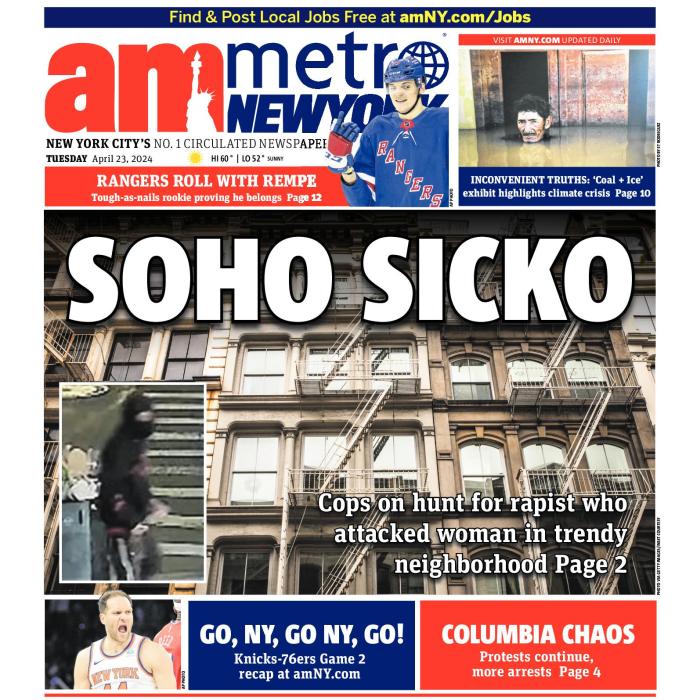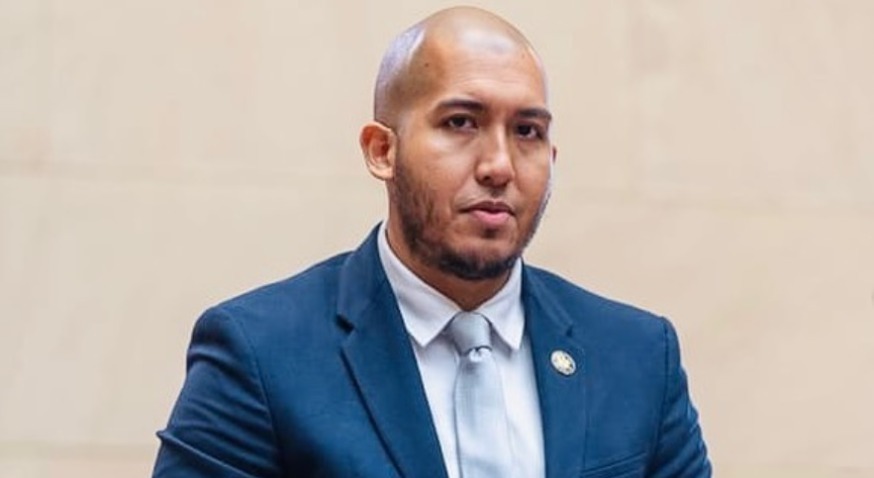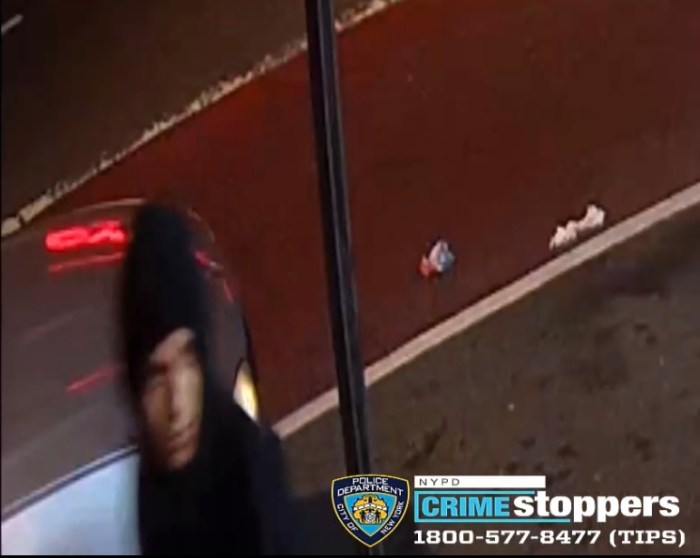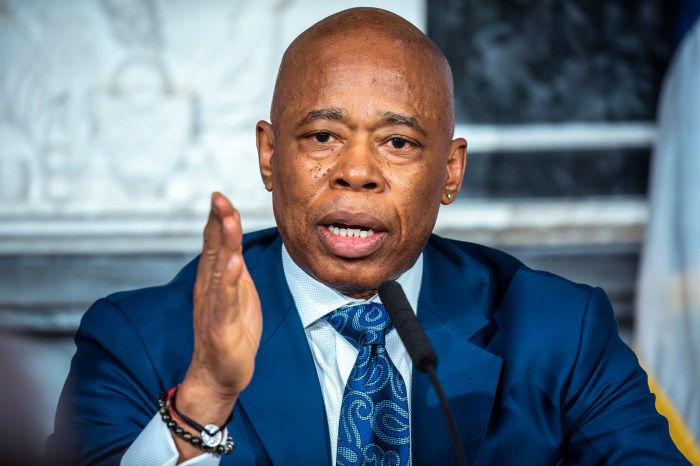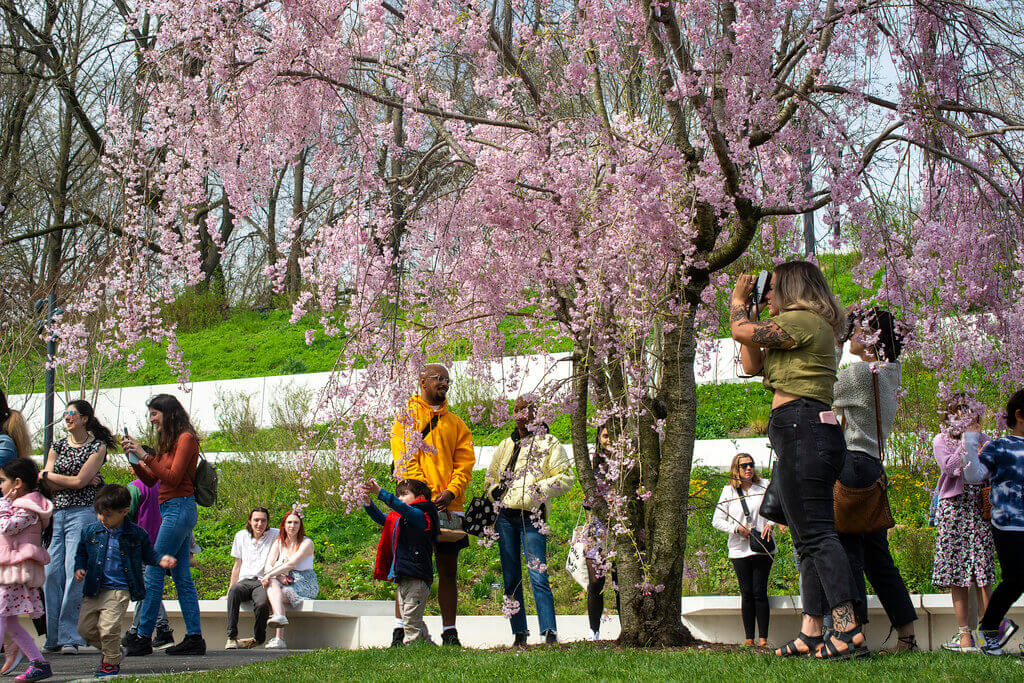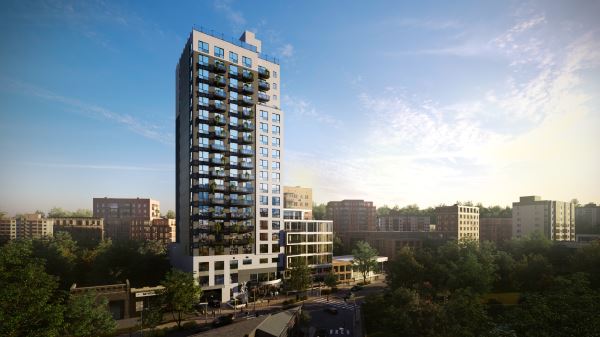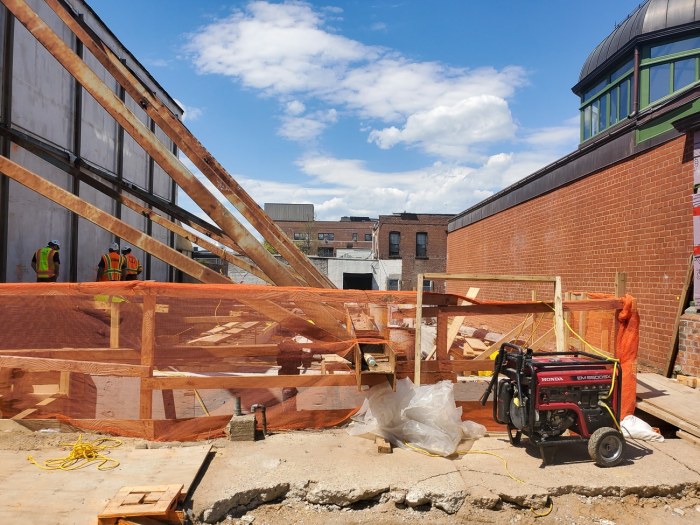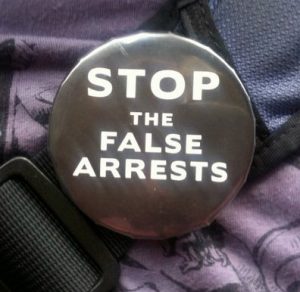 [/media-credit]
[/media-credit]
Robert Pinter, 52 when arrested, alleged he was wrongly caught up in a police sting operation targeting gay men patronizing stores selling sexually oriented materials in order to support efforts to close the stores as “public nuisances.”
On Nov. 18, the Second Circuit panel reversed District Judge Shira Scheindlin’s denial of summary judgment for false arrest and malicious prosecution. But the panel upheld Scheindlin’s decision to let Pinter’s claims of abuse of process, sexual-orientation discrimination and denial of the right of free association proceed.
The incident occurred when Pinter visited the Blue Door video store in Chelsea in October 2008. A young man stared at him, flirted and initiated conversation, asking, “What do you like to do?” Pinter responded that the man was “good-looking” and said he liked oral sex. The young man responded in kind, voiced hesitancy about doing anything in the store, and suggested his car was parked nearby. Pinter walked to the exit, followed by the young man, who in fact was an undercover police officer, identified in court papers as UC 31107.
As they were exiting, UC 31107 said he would pay Pinter $50 for oral sex. Pinter made no verbal response, though he later testified he immediately decided that any possibility of doing anything with the young man “was over.” After they stepped outside, the young man gestured toward his car, which he and Pinter headed for, engaging in “flirtation,” when suddenly two plainclothes police officers rushed up and arrested Pinter, spiriting him away in a police van. An officer told Pinter he was being arrested for prostitution. Pinter responded, “You’ve got to be kidding me… . Your officer approached me, butted his nose into my business, and created this whole incident.”
A few days later, Pinter pleaded guilty to a reduced charge of disorderly conduct and was sentenced to conditional discharge, five counseling sessions and a $120 fine. Soon after, however, Pinter thought better of his decision and contacted The Villager’s sister paper Gay City News. When subsequent reporting suggested a pattern of entrapment of middle-aged gay men clearly not prostitutes, and gay community members and political leaders responded with criticism of the arrests, the District Attorney’s Office dismissed some pending prosecutions. After Pinter moved to vacate his conviction, the D.A. announced he would not oppose it, though maintaining there was “probable cause” for his arrest.
Pinter then filed suit, alleging there was a city policy of “making probable cause-lacking false arrests for the purpose of obtaining a data base of arrests, which was to be utilized in independent nuisance-abatement civil litigations…against certain targeted businesses, among them the Blue Door.”
Gay City News reported that Manhattan South Vice Enforcement Squad arrested at least 30 men, many middle-aged, for prostitution in six porn shops in 2008. Another 11 men and a woman were busted for prostitution in two spas that year. The same officers made most of the arrests. The city’s Law Department, the Mayor’s Office of Special Enforcement and the Police Department’s legal unit cited the arrests in nuisance-abatement lawsuits against those businesses.
Qualified immunity means an officer could have believed he had probable cause to make the bust. However, explaining why this defense did not apply, Scheindlin wrote, “No competent officer could reasonably believe that it was probable that Pinter committed prostitution where the undercover knew that [the officer] initiated the contact, steered the conversation toward sex, took steps toward the location where the sex act was to occur, raised the issue of cash-for-sex, faced silences as to whether Pinter meant to accept the cash, continued walking toward the specified location, initiated further conversation about sex, and knew that Pinter was 52 years old. And there was no impediment to prevent the undercover from quickly pursuing a simple inquiry to ascertain additional information about whether Pinter had accepted or declined a fee offer.”
But Pinter’s failure to tell the undercover he wasn’t interested in money for sex, while continuing to walk and flirt with him, weighed heavily in the appeals panel’s thinking.
Pinter can still argue the city was misusing the criminal process to shut Blue Door down on grounds it harbored male prostitutes — and that his arrest was part of a policy targeting gays who were shopping for legally distributed matter at adult establishments the city sought to close.
Pinter said of the ruling, “I am disappointed. It is a bad, legally flawed decision, laced with deepseated homophobic assumptions about the facts… . I felt morally compelled to come forward three years ago… . The outcry against the corrupt, unethical police operation that generated these arrests became so pervasive that in March 2009 N.Y.P.D. Commissioner Kelly gave an order that, in effect, shut it down.”
